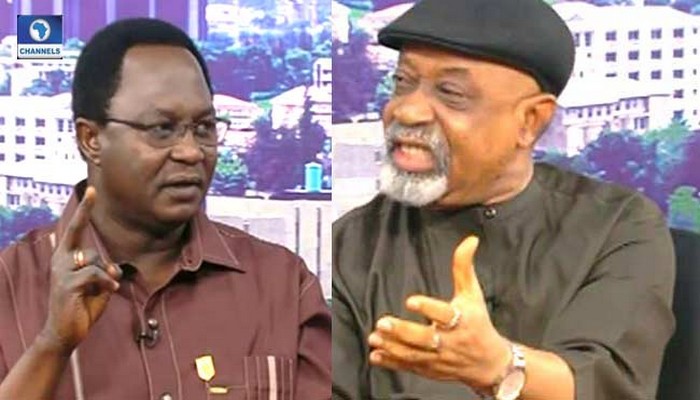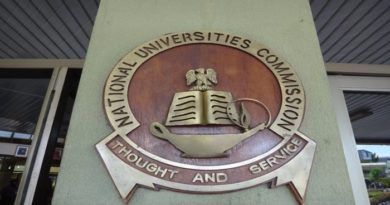FG’s ‘no work, no pay’ not implementable in universities —Committee of Vice Chancellors
The Committee of Vice-Chancellors of Nigerian Universities (CVCNU) says though the ‘no work no pay’ policy is a valid labour policy, the peculiarity of the academic environment makes it unimplementable in the academia.
Besides, it says that applying the policy against members of the Academic Staff Union of Universities (ASUU) who reluctantly suspended their eight-month strike and returned to classroom on the basis of trust is immoral and a bad omen for the system.
The Secretary-General of the committee, Professor Yakubu Ochefu, gave this position in an exclusive interview with the Nigerian Tribune at the weekend.
He noted that it was only after the Speaker of House of Representatives, Femi Gbajabiamila, intervened and brokered peace between the Federal Government and ASUU leadership that the lecturers agreed to go back to work in good faith.
He said now that the lecturers are back in the classrooms and commenced work, the government cannot now to play pranks on them. “
ASUU never trusted government or its agents in fulfilling promises in the past, and that paying them half salaries has confirmed the lecturers’ worries that government or the people taking decisions on its behalf cannot be trusted.”
Professor Ochefu explained that even though the labour law is clear and nobody is contending ‘no work, no pay’ policy, the peculiarity of academic environment, particularly the university system, works against such policy.
According to him, the academic calendar and coursework cannot be skipped.
He said now that lecturers have resumed academic activities, they must have to start from where they stopped before the strike, finishing their coursework, conduct examinations if they had not done so and also mark scripts.
He said since that is the way things are done in academic environment, to implement ‘no work, no pay’ policy would certainly be a difficult thing, and hence, the lecturers deserve their wages in full.
“The best way out is for government to find administrative solution around the policy and not be unnecessarily rigid about it so that our public university system will continue to run,” he added.
Meanwhile, there is a recent precedent that compels university lecturers to be paid their full salary for the eight months they were on strike, rights lawyer, Mr Femi Falana, argued in a Sunday op-ed, criticizing the half salary paid the lecturers.
He submitted that the ‘no work, no pay’ doctrine adopted by the central authorities in arriving at the controversial payment to the lecturers wasn’t applicable to them.
He stated that, “In justifying the payment of half salary to members of ASUU for the month of October 2022, the Minister of Labour and Employment, Dr Chris Ngige, has invoked the ‘no work, no pay’ clause in Section 43 of the Trade Disputes Act (Cap T8) Laws of the Federation of Nigeria, 2004.”
According to the Ministry of Labour and Employment, the lecturers “were paid in pro rata to the number of days that they worked in October, counting from the day that they suspended their industrial action. Pro-rata was done because you cannot pay them for work not done. Everybody’s hands are tied.
“The position of the Federal Government is factually faulty and legally misleading. Since the industrial action was called off, the public universities have adjusted their calendars to ensure that the 2021/2022 academic session is not cancelled.
“Consequently, students are currently taking lectures or writing examinations that were disrupted during the strike of the ASUU.
“Therefore, having regard to the facts and circumstances of the ASUU strike, the doctrine of ‘no work, no pay’ is totally inapplicable as students who were not taught during the strike are currently attending lectures and writing examinations,” Falana argued.
Drawing a parallel, the Senior Advocate of Nigeria (SAN) stated that “it is public knowledge that the members of the Nigerian Association of Resident Doctors (NARD) embarked on a strike that lasted two months last year.
“The Federal Government dragged the striking doctors to the National Industrial Court (NICN) which ordered the NARD to call off the strike. As soon as the strike was called off, President Muhammadu Buhari jettisoned the ‘no work, no pay’ principle and ordered the payment of the salaries for the two months that the strike lasted. On that occasion, the president overruled Dr Ngige in the interest of industrial harmony in the health sector.
“In the same vein, the ASUU recently called off its eight-month old strike in compliance with the order of the NICN and the Court of Appeal.
“We are, therefore, compelled to call on President Buhari to ignore the advice of Dr Ngige and direct the public universities to pay the full salary of each lecturer from February to October 2022.
“Otherwise, the Federal Government will be accused of engaging in the selective application of the ‘no work, no pay’ principle which is discriminatory and illegal.”
In a similar development, the Socio-Economic Rights and Accountability Project (SERAP) has urged President Muhammadu Buhari to “direct the Minister of Labour and Employment, Chris Ngige, and the acting Accountant-General of the Federation, Sylva Okolieaboh to immediately reverse the apparently illegal deductions from the salaries of members of ASUU for October 2022.”
SERAP is also urging him to “direct Mr Ngige and Mr Okolieaboh to pay ASUU members full salaries for the duration of their strike.”
The Federal Government recently allegedly paid half-salaries to members of ASUU for the month of October, 2022 with some professors reportedly receiving salaries ranging from N71,000 to N121,000 for October.
In the open letter dated November 5, 2022 and signed by SERAP’s deputy director, Kolawole Oluwadare, the organisation said, “Paying half salaries to ASUU members solely for exercising their human rights is patently unlawful and incompatible with the Nigerian Constitution 1999 (as amended) and international standards.
“The alleged deductions from the salaries of ASUU members also amount to punishing them for exercising their right to strike.”
The letter reads in part: “The deductions are illegal and disproportionate. The deductions may also be construed as a deliberate attempt to take away the right to strike, and to make ASUU a lame duck. “The right to strike implies the right of workers not to be punished for striking. ASUU members do not, therefore, forfeit their salaries because they exercise their right to strike.
“We would be grateful if the recommended measures are taken within seven days of the receipt and/or publication of this letter. If we have not heard from you by then, SERAP shall take all appropriate legal actions to compel your government to comply with our requests in the public interest.”
Credit: Nigerian Tribune




